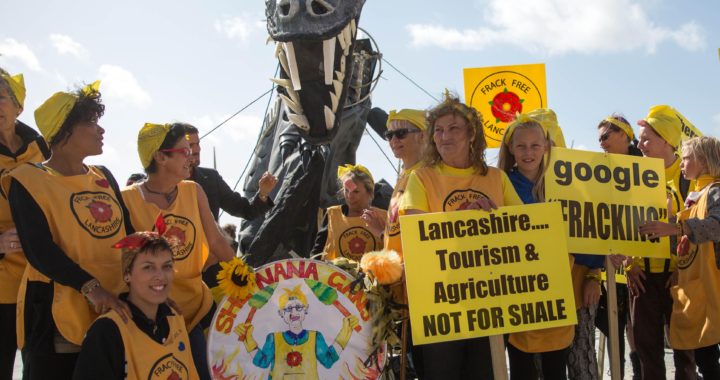It’s been a really tough year for people hoping to expand fracking projects in the United Kingdom. 2016 began with Greenpeace dropping a fracking installation piece in Parliament Square, and it’s looking to end with one of the most aggressive anti-fracking campaigns ever launched. Or so it may seem.
Though fracking has been practiced by the United Kingdom to some extent since the 1970’s, the government’s latest attempt to launch new fracking projects within its borders has met with extreme resistance. Those people who may have hoped to profit from the expanded fracking projects may need to look elsewhere, and those who may have been a little worried about another nation actively seeking their own source of shale gas may not have much to worry about when all is said and done.
Last Saturday, October 29, protestors from the Cambridge Anti-fracking Network crowded outside Barclay’s banks across the country. In London, the crowd was so thick, the bank has to be closed. Cambridge’s St. Andrew Street bank was similarly thronged with angry protestors for the first part of a weeklong plan, in which “hundreds of people took to the streets collecting petition signatures, closing accounts, sending letters, engaging with Barclays customers and passers by, and running differently themed events to ask Barclays to stop funding fracking.”
The protests in Cambridge and London are just one prong of what has turned out to be a remarkably potent anti-fracking campaign. In Lancashire, they’ve raised over 20,000 signatures to stop government-approved fracking. The motion in question was passed less than a month ago.
While the plans to turn fracking into a moneymaker for the UK are still ongoing, Matt Cook, an analyst at energy consulting firm Douglas Westwood, claims that the fracking deposits scattered through the United Kingdom are too “small and niche” thanks to a lack of major investments. With the static Barclays is facing as a result of its financing of the country’s fracking projects, it’s a small wonder that the hydraulic fracturing industry has yet to take off in the United Kingdom.
Perhaps the most surprising facet of the conflict is that for all the ink that these protests are getting, and for all the legitimacy they’re being given there’s still very little proof that these protests reflect anything more than a slim minority of the population. For example, the previous protests drew crowds of dozens. The combined country-wide protest drew out hundreds of people. The United Kingdom may be small, but that still doesn’t represent a big portion of the community. The poll we mentioned previously that’s got 20,000 signatures … in 2015 Lancashire reported a population of 1.1 million (and growing). Yet, these protests have been granted so much weight that hydraulic fracturing is financially stalled in the country.
In other words, in the United Kingdom as in the United States, it seems that a minute section of the population is being given more credence than their numbers may merit.

